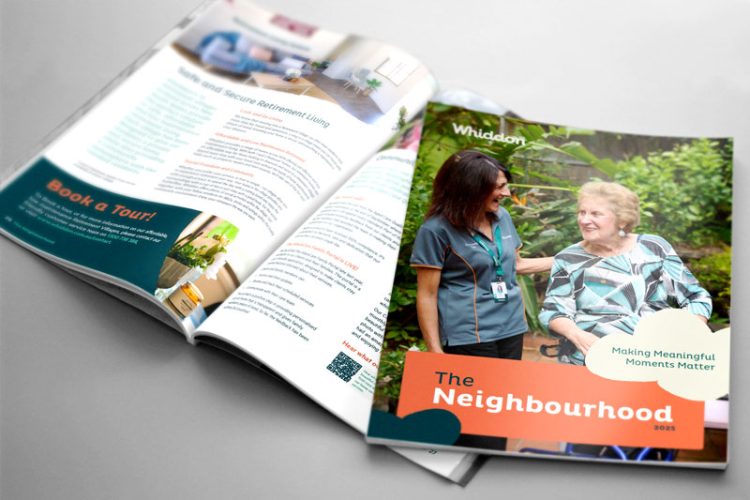Over 1.4 million older Australians experiencing loneliness
Date: 29 April 2015
New research from Whiddon looks into the causes and impacts of loneliness and social isolation among older Australians and exposes the shocking statistic that more than 1.4 million people aged 65 and over (45% of this population group) experience loneliness in their lives, compared to just 10 per cent of the general population.
Whiddon’s 2015 Social Isolation and Loneliness Report (conducted by Galaxy Research) also reveals that people in this age group who are affected by loneliness are much more likely to face barriers to staying socially active. Financial constraints are the main cause of social inactivity, followed by general health and physical disability.
Monetary issues continue to come to the fore, with research showing a significantly higher number of people aged 65 and over with a household income of under $50,000 a year experiencing loneliness, compared to those with an income over $50,000.
Karn Nelson, Executive General Manager Strategy and Research, said “The sad truth is that financial constraints can be a major factor contributing to older Australians experiencing loneliness and being cut off from society. This is particularly concerning as loneliness and social isolation can be attributed to a range of negative effects on both physical and mental health, such as depression, cardiovascular disease, stroke, increased stress levels, alcoholism and the progression of Alzheimer’s.”
“Preventing isolation is vital. There are little things we can do that can make a huge difference to older people in our communities. Even something as simple as making sure to visit an older relative once a week, taking time to stop and chat with older people in your street, or taking someone along to do their grocery shopping can make the world of difference.”
“At Whiddon, we have seen our clients’ quality of life improve significantly when we build in and create opportunities for regular outings and social activities to their weekly schedule. We also offer broad Creative Ageing activities and projects such as storytelling, arts and crafts, painting, choirs and music to help our clients engage with others, express themselves and feel included.”
Adam’s Story
Whiddon Registered Nurse Deb Ditz points to the case of 75 year old ‘Adam’ saying, “When we began providing our new Consumer Directed Care home care package to Adam, his quality of life changed dramatically for the better. He is legally blind and lives at home without family support, neither emotionally or financially, which left him withdrawn and isolated.”
Adam and Deb worked together to produce a plan of care which included Adam’s life goals. These goals included Adam’s wishes to increase his social activities, as well as being able to shop for his groceries and make choices about the foods that he is eating.
“Since building a trusting relationship with us, Adam goes out into the community with a care staff member to do the shopping and have lunch once a week,” Deb said. “We also visit him twice daily, assisting in multiple ways so he can continue living independently in his own home, something he feels very strongly about.”
“The flexibility of Adam’s Consumer Directed Care plan allows us to do things like help him access the community regularly. Additionally, at Adam’s request, our team are working to try and reconnect him with his two sons who he lost contact with some time ago, to help rebuild an important social connection.”
Despite the high levels of loneliness evidenced by the research, Karn believes the figures may be even greater, saying, “The true numbers of people experiencing loneliness is likely to be more widespread even than this research demonstrates, as those in the most isolated situations are often the most difficult to reach when surveying.”
“It’s important for everyone to realise that strong communities where everyone is valued and included are healthy communities – not just for older people but for everyone. Loneliness affects many people’s health in our communities today and solving this issue will benefit us all.”
Contact Whiddon to find out more about Creative Ageing and our approaches to combatting loneliness and social isolation.
Media Enquiries:
Martin Harkin
02 9963 7814
martin.harkin@redagency.com.au


